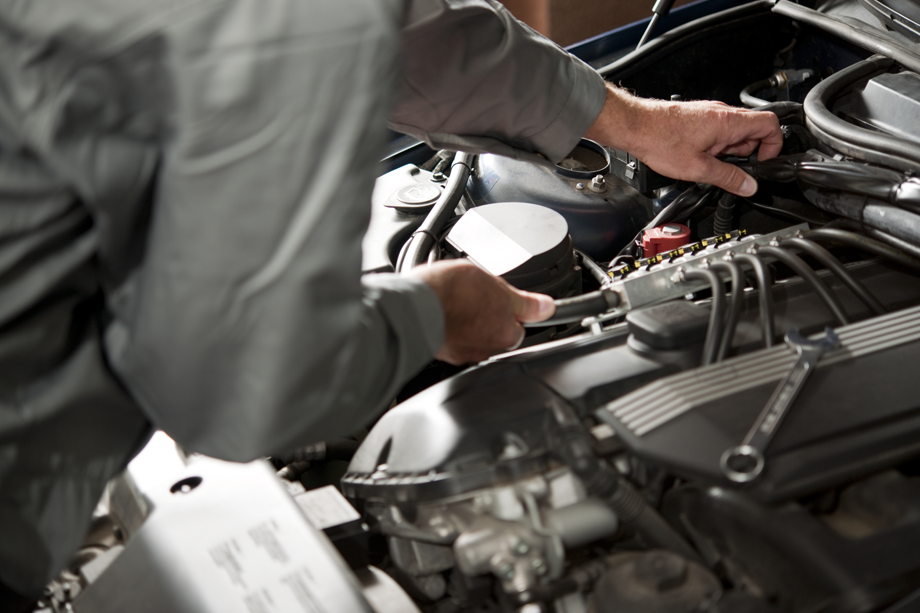All Categories
Featured

Modern automobiles are equipped with innovative engine control units (ECUs) that keep track of and control numerous elements of the engine. These systems can identify issues prior to they end up being obvious to the motorist, which is where engine diagnostics enter into play. Engine diagnostics is an effective device that enables technicians to identify issues early, aiding avoid significant repair services and guaranteeing the long life of your automobile. Below's just how engine diagnostics work and why they are vital for maintaining your vehicle's wellness.
- What Are Engine Diagnostics? Engine diagnostics refer to the process of using specialized tools to keep an eye on and examine the performance of a car's engine. The analysis system within a cars and truck collects data from sensors located throughout the engine and other essential parts, such as the gas, transmission, and exhaust system. This information is then processed by the lorry's onboard computer, which can find irregularities or malfunctions.
Auto mechanics can link an analysis tool, typically an OBD-II (Onboard Diagnostics) scanner, to your auto's ECU to obtain mistake codes and real-time data. These codes show details locations where the engine or various other parts may be experiencing problems, even before alerting lights or performance adjustments are obvious to the driver.
- Recognizing Problems Early. One of the most considerable advantages of engine diagnostics is the capacity to identify troubles early, commonly prior to they rise right into significant concerns. Small troubles, such as a misfiring trigger plug, a defective sensing unit, or an inefficient gas injector, can gradually get worse if left unchecked. With early discovery via engine diagnostics, technicians can attend to these small issues before they create substantial damages.
For instance, if a sensing unit spots that the engine is running abundant or also lean (also much or as well little gas), this might lead to raised endure engine components or poor fuel efficiency. By diagnosing this very early, the auto mechanic can readjust the air-fuel mix, preventing pricey repair work later.
- Stopping Engine Damage. Gradually, troubles with the engine's parts, such as the timing belt, exhaust system, or cooling down system, can lead to severe damage if not addressed quickly. As an example, a getting too hot engine because of a failing radiator or water pump can trigger comprehensive internal damage, such as warped cylinder heads or a blown gasket. Identifying concerns early via the engine diagnostics system can avoid these situations from proceeding to catastrophic engine failure.
The analysis system can also spot problems with the exhaust system, such as a malfunctioning catalytic converter, which can cause poor engine efficiency and eventual engine damages otherwise fixed.
- Lowering Repair Costs. By determining and attending to minor issues early, engine diagnostics can save you considerable cash on fixings. Fixings have a tendency to be much less intricate and much more cost effective when problems are captured early. Changing a damaged oxygen sensor or cleansing a blocked fuel injector is fairly cost-effective contrasted to changing an entire engine due to forget.
Additionally, engine diagnostics aid avoid unnecessary fixings by pinpointing the specific source of the trouble. Without diagnostics, auto mechanics might have to carry out substantial testing and trial-and-error techniques to diagnose the issue, which can boost both time and price.

- Improving Car Performance and Effectiveness. One more advantage of regular engine diagnostics is that it helps enhance your car's efficiency and gas performance. If the engine is running smoothly and all systems are operating optimally, you will experience far better acceleration, smoother driving, and enhanced gas economy. Engine diagnostics can expose concerns such as a stopped up air filter, a malfunctioning mass air flow sensing unit, or a worn-out ignition system that might hinder your auto's performance.
As an example, a malfunctioning thermostat could trigger your engine to get too hot or not reach its suitable operating temperature. A diagnostic scan will help determine this issue early, protecting against overheating and ensuring your car operates at its best.
- Why Routine Diagnostics Matter. While many vehicle drivers might think of engine diagnostics as something to do only when the "check engine" light shows up, regular diagnostics should belong to regular automobile upkeep. Lots of car repair service shops and dealerships use diagnostic checks as part of a yearly solution or tune-up. Regular analysis scans help capture issues before they cause noticeable signs or failures, eventually avoiding major repair work later on.
It is likewise worth keeping in mind that if you're preparing to sell or trade-in your automobile, having a current engine analysis report can be advantageous. Possible purchasers or dealerships may be extra likely to supply a higher trade-in worth or purchase price if they know the automobile has actually been free and well-kept of major engine concerns.
- Verdict. Engine diagnostics play a crucial function in maintaining your automobile running effectively and preventing pricey repair services. By identifying issues early, stopping engine damages, decreasing repair service prices, and boosting efficiency, engine diagnostics ensure your automobile continues to be reliable for many years to come. Normal analysis checks as component of your automobile's regular maintenance will aid you catch tiny concerns before they become major repairs, giving you assurance on the roadway and protecting your financial investment.
Latest Posts
What Allows Are Needed for Installing a Fence My Area?
Published Dec 18, 24
0 min read
Just How Much Does It Price to Install a Fence on a Property?
Published Dec 18, 24
0 min read
A Complete Guide to the Car Buying Process
Published Dec 18, 24
2 min read